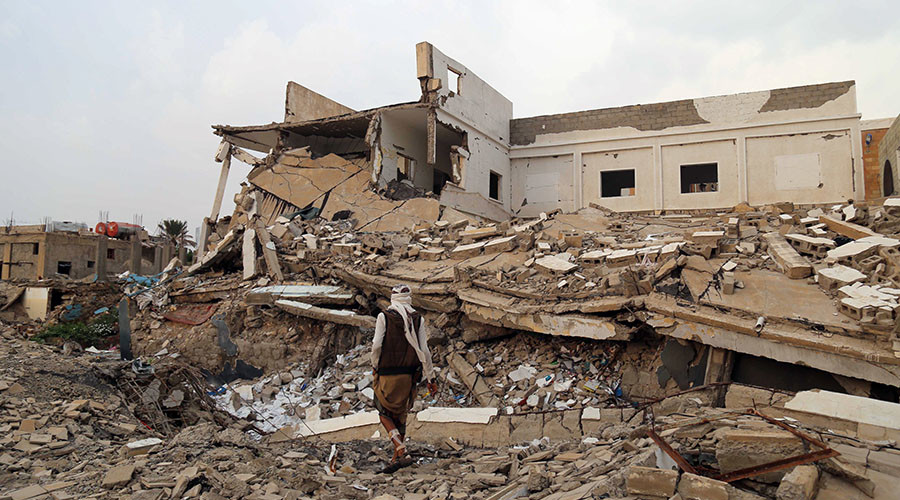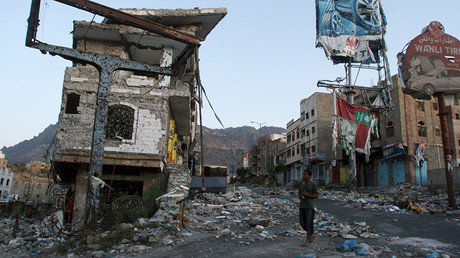Yemen war ‘unconstitutional,’ says trio of US lawmakers

A group of Congressmen from both major parties is hoping to force a vote over Washington’s involvement in Yemen, with a resolution invoking the War Powers Act to force the US to stop aiding the Saudi-led coalition in its bombing campaign.
Three members of the US House of Representatives tried to illustrate the horrors of the Yemen conflict by comparing it to a hypothetical war affecting the US state of Washington ‒ with a population of 7.3 million ‒ “on the brink of starvation, with the port city of Seattle under a naval and aerial blockade, leaving it unable to receive and distribute countless tons of food and aid that is waiting offshore.”
“This nightmare scenario is akin to the obscene reality occurring in the Middle East’s poorest country, Yemen, at the hand of the region’s richest, Saudi Arabia, with unyielding support from the US military that Congress has not authorized and therefore violates the Constitution,” wrote Representatives Ro Khanna (D-California), Mark Pocan (D-Wisconsin) and Walter Jones (R-North Carolina) in a New York Times op-ed Tuesday.
In March 2015, the Obama administration began aiding the coalition led by Saudi Arabia in its war against the Houthis, a rebel group that took control of Yemen’s capital Sanaa. Since then, Washington has supported the coalition’s military campaign in Yemen, by providing the Saudis with logistical support, intelligence and ammunition used in airstrikes.
This has led to the deaths of over 10,000 civilians and has plunged much of Yemen into a humanitarian crisis.
The three lawmakers teamed up with colleague Thomas Massie (R-Kentucky) to introduce House Resolution 81, invoking the War Powers Act to guarantee a full House vote to withdraw US armed forces from the unauthorized war.
“We believe that the American people, if presented with the facts of this conflict, will oppose the use of their tax dollars to bomb and starve civilians,” the three representatives wrote.
Several more lawmakers have expressed support for the proposal as well.
Under the 1973 law, any proposed Congressional resolution regarding an unauthorized use of force is considered a priority, meaning that the foreign affairs committee must report on it within fifteen days and a vote must be held within three days thereafter.
“It will sit with the Foreign Affairs Committee for 15 calendar days and will then be discharged for consideration by the full House. At that point, any member of Congress can call the resolution up for a debate and floor vote,” Kate Khizer, Director of Policy and Advocacy at the Yemen Peace Project told The Intercept.



0 Comments:
Post a Comment
Subscribe to Post Comments [Atom]
<< Home